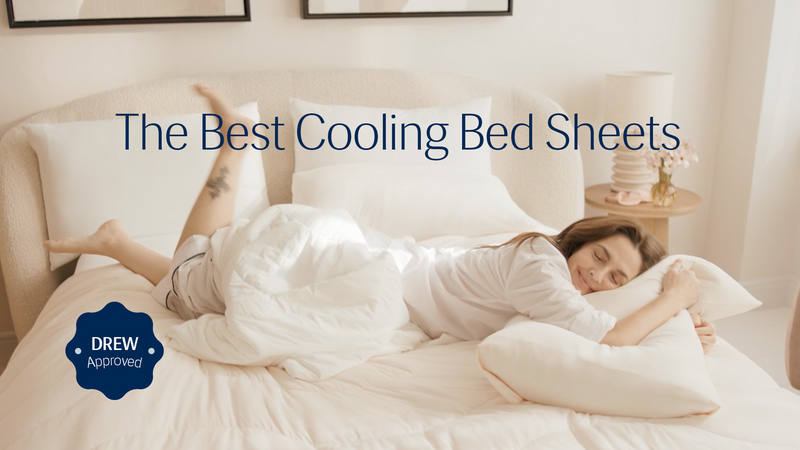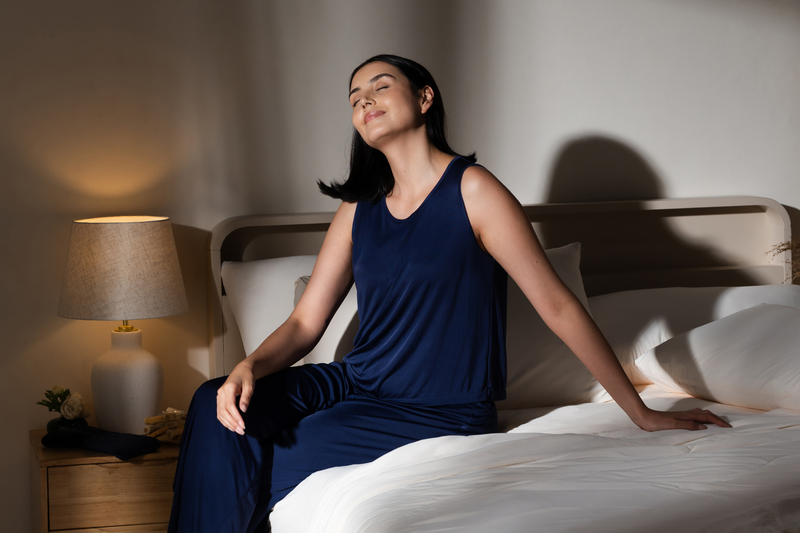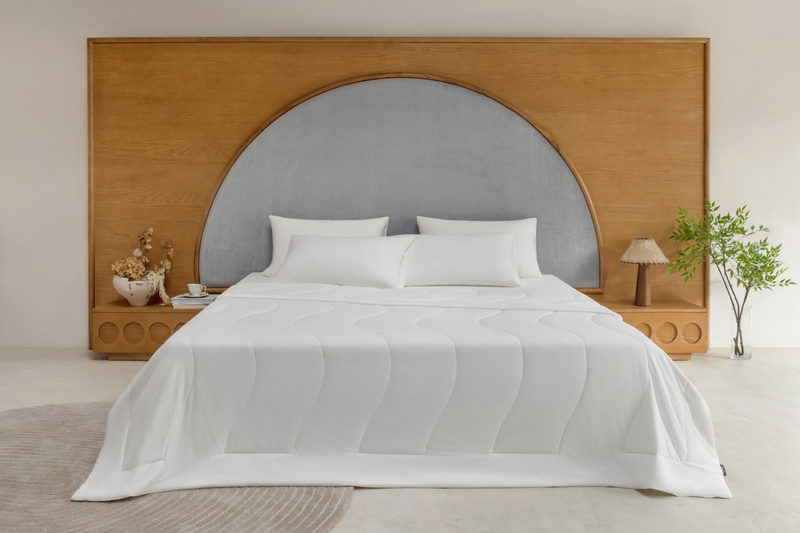How Sleep Masks Can Improve Your Sleep

TL;DR: Sleep masks can improve sleep quality by blocking light, boosting melatonin, and supporting your circadian rhythm. The best eye masks, like Rest's Evercool® Cooling Eye Mask are comfortable, breathable, and suited to your needs—like silk for hot sleepers, weighted for relaxation, or memory foam for cushioning. To get the most benefits, choose a proper fit, keep it clean, and combine with good sleep hygiene for deeper, uninterrupted rest.
Sleep masks, once seen as superfluous luxury items, have become a practical tool for anyone seeking deeper, more restful sleep. Whether you're struggling with insomnia, are sensitive to light, or just want to optimize your sleep environment, an eye mask could be the perfect addition to your bedtime routine.
Why Use a Sleep Mask for Bedtime?
One of the primary benefits of a sleep mask is light blocking. Exposure to light at night—whether from streetlights, electronic devices, or even a nightlight—can interfere with your body's ability to produce melatonin, the hormone responsible for regulating sleep cycles. According to the National Sleep Foundation, even low levels of artificial light can disturb sleep patterns, making it harder to fall asleep or stay asleep. Sleep masks create a total blackout effect, which can help boost melatonin production and signal to your brain that it’s time to rest.
What Kind of Eye Mask Is Good?
The fit and finish is most important when looking for the best eye mask, with some even offering unique benefits based on your personal needs. When choosing a sleep mask, opt for ones that feel snug but not too tight. Avoid sleep masks with a thick strap as the added bulk can cause discomfort by creating an uneven surface between your head and pillow, leading to pressure points and disrupting your rest as your head is elevated slightly off the pillow.
For hot sleepers, cooling masks or sleep masks made from breathable materials like Evercool® or silk are great options. Much like silk, Evercool® Cooling Eye Masks are hypoallergenic, lightweight, and gentle on skin and hair. For those who travel frequently or deal with migraines, weighted eye masks can add a soothing pressure that helps alleviate tension. Memory foam masks are also ideal for those who need extra comfort and cushioning.
How to Get Used to Wearing an Eye Mask for Sleeping?
If you’re new to using a sleep mask, it may take a few nights to adjust. Start by wearing it for short periods before bed, such as during meditation or while relaxing. Gradually wear it every other night for an acclimation period to see if you benefit from improvements to sleep quality.

How to Sleep Comfortably With an Eye Mask?
To sleep comfortably with an eye mask, ensure the mask allows for some customization. Choose a style with an adjustable strap and consider the material—lightweight fabrics like silk or satin can reduce pressure on your face, while memory foam masks contour to your face for a personalized fit. If any discomfort persists, consider small manual adjustments, such as stretching out the elastic band if it still feels too tight, or swapping for a different material to reduce irritation.
How Often Should I Wash My Sleep Mask?
It’s recommended to wash your sleep mask at least once a week to prevent bacteria buildup. Sleep masks come in direct contact with your skin, absorbing oils, sweat, and dead skin cells. Over time, this can cause irritation, especially if you have sensitive skin. For people who wear them nightly, have oily or acne-prone skin, eye masks should be washed more frequently, such as every 3-4 days, to help maintain hygiene and reduce breakouts.
Is It Bad to Sleep With Lights On if You Use a Sleep Mask?
Sleeping with lights on, even while using a sleep mask, can still impact your overall sleep quality. While the mask blocks direct light from reaching your eyes, ambient light can still affect your body's natural circadian rhythms as your skin has receptors that detect light. So while the mask helps, it’s best to keep your sleeping environment as dark as possible.
Do Sleep Masks Damage Your Hair?
Sleep masks themselves don’t usually damage hair, but certain types with thick or tight bands can create friction against your hair, leading to tangles or breakage over time. To avoid this, opt for masks with soft, smooth straps or those specifically designed with hair protection in mind.
Sleep Masks as Part of a Healthy Sleep Routine
Incorporating a sleep mask into your routine can complement other sleep-improving practices, such as lowering the thermostat of your sleep environment or using a cooling comforter like the Evercool® Cooling Comforter, especially for hot sleepers or those experiencing hot flashes. Together, these elements help create an optimal, soothing environment to achieve deeper, uninterrupted sleep.
|
|
|
Sleep masks are more than just an accessory; they’re a simple yet effective tool for improving the quality of your rest. Whether you're dealing with nighttime disruptions or looking to improve your bedtime routine, choosing the right eye mask, keeping it clean, and adjusting to it properly can make a world of difference.








